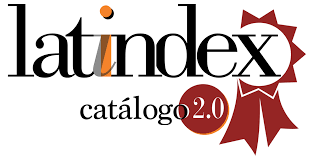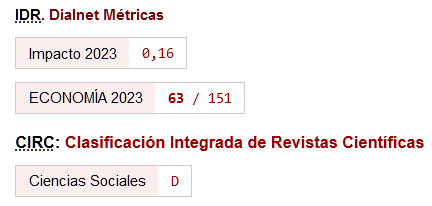Hidrocarburos en Kazajastán: nuevas realidades y enfoques para el estudio de las relaciones energéticas de Asia Central
Keywords:
Central Asia, hydrocarbons, international energy scene, energy relations theoryAbstract
Since 1994 much has been said about the potential of the former Soviet Republics of Central Asia as hydrocarbon exporters. However, as we will argue in the paper, most of those analyses are founded on in two outdated premises: a) that the energy relations are like the ones that the Dichotomous Energy Paradigm (DEP) describes - Producer countries vs. Consumer countries-, and b) that the role and goals of the Producer countries in the world economy are still the same as than the ones they had in the 1970s. After explaining why those premises are outdated, the goal of the paper will be threefold: a) to show why the hydrocarbons of Central Asia constitute a new type of case of study in the contemporaneous world economy; b) to describe which are actually the energy relations in Kazakhastan and which could be the future pattern of alliances with the world International Oil Companies (IOC) and National Oil Companies (NOC), from both consumer and producer countries; and c) from this case of study, to infer which might be some of the constitutive elements of a new energy paradigm -more focused on the idea of an energy Governance Structure than on the DEP.
Downloads
References
AEF, "Les fonds souverains", Révue d'Économie Financière, Hors série 2009
Akins, J.L. (1973),"The oil crisis: this time the wolf is here", Foreign Affairs ,51, 3, 462. https://doi.org/10.2307/20037995
Campins Eritja, M (2009); "La gestión de los cursos de agua internacionales en Asia Central: ¿amenaza u oportunidad?", ARI 77/2009, Real Instituto Elcano de Estudios Internacionales y Estratégicos
Carpintero, O. (2009); "El poder financiero de los grandes grupos empresariales. Los nuevos creadores de dinero", en Aguilera, F. y Naredo, J.M.; Economía, Poder y Megaproyectos, Economía&Naturaleza, Fundación Cesar Manrique, 79-124
Chévalier, J.M (2004) ; Les grandes batailles de l'énergie, Petit Gallimard, Gallimard, Paris
Chevalier, J.M. (1973), Le nouvel enjeu pétrolier, Calmann-Lévy, París
CIDOB-OAC (2009); "Informe final sobre la gestión de los recursos hídricos en Asia Central: Cuestiones regionales e internacionales en juego", Barcelona, 23 de enero de 2009, http://www.asiacentral.es/docs/Water_CentralAsia_informe_cast.pdf
CIEP (2004); "Study on Energy Supply Security and Geopolitics". Final Report prepared for DGTREN. TREN C1/06 2002. ETAP Programmede la Cámara, C. (2009) "Seguridad económica en el espacio post-soviético de Asia Central", ARI Nº 84/2009, Real Instituto Elcano de Estudios Internacionales y Estratégicos
Echeverría Jesús, C (2008); "La importancia estratégica de Asia Central (II): el debate energético", ARI Nº 82/2008, Real Instituto Elcano de Estudios Internacionales y Estratégicos
Erzan, R. (1999); "Regionalismo y globalización en el contexto de los acuerdos euromediterráneos", in: BACARIA, J. and TOVIAS, A. (Eds.); Librecambio euromediterráneo, Icaria Antrazyt.
ICM, Barcelona. Escribano, G. (2006), "Seguridad energética: concepto, escenarios e implicaciones para España y la UE", DT Nº 33/2006, Real Instituto Elcano de Estudios Internacionales y Estratégicos
Fernández, R. (2009); "La UE y el gas natural de Asia Central: ¿es Nabucco la mejor opción?", ARI 102/2009, Real Instituto Elcano de Estudios Internacionales y Estratégicos
Gieve, J. (2009); "Sovereign Wealth Funds and Global Imbalances, Révue d'Économie Financière", Hors série 2009, Les fonds souverains,163-177. https://doi.org/10.3406/ecofi.2009.5503
Hull, (2002), "A structure for supply-chain information flows and its application to the Alaskan crude oil supply-chain", Logistics Information Management, 15, 1, 8-23. https://doi.org/10.1108/09576050210412639
Isbell, P. (2007); "El nuevo escenario energético y sus implicaciones geopolíticas" DT Nº 21/2007, Real Instituto Elcano de Estudios Internacionales y Estratégicos-(2007b); "Las rutas del petróleo en Asia Central", Anuario Asia-Pacífico 2007, 329-339, http://www.anuarioasiapacifico.es/anuario2008/esp/index.html
Kaplan, R. (2009); "La venganza de al geografía", Foreign Policy española, junio-julio 2009, Link
Kérébel, C. (2009), "Qu'est-ce que la gouvernance globale de l'énergie ? Les termes du débat" en, Keppler, J.H. et Kérébel, C. La gouvernance mondiale de l'énergie, Ifri, http://www.ifri.org/files/Energie/Sommaire_Gouvernance_liens.pdf
Klare, M. (2004); Blood and Oil: The Dangers and Consequences of America's Growing Dependency on Imported Petroleum, New York: Metropolitan Books
Mahmud El Gamal y Amy Myers Jaffe, (2009), "La 'economía basura' y la gasolina", Foreign Policy española, Octubre-Noviembre, http://www.fp-es.org/la-economia-basura-y-la-gasolina
Mañé, A. (2008) ; "Sécurité énergétique en Méditerranée occidentale : nouveaux facteurs, nouvelles politiques, un regard espagnol", Note de l'Ifri, , http://www.ifri.org/frontDispatcher/ifri/publications/notes_de_l_ifri_1032185688636/publi_P_publi_energie_maneestrada_1223913086335
-(2005), "European Energy Security: towards the creation of the geo-energy space", Energy Policy, 34, 3773-3786
-(2005b); "European Energy Security: towards the creation of the geo-energy space", (2005 - WS 03), Sixth Mediterranean Social and Political Research Meeting, Mediterranean Programme of the Robert Schuman Centre for Advanced Studies at the European University Institute, Montecatini Terme, March-(2005c); "Territorios ricos en hidrocarburos de Asia Central: ¿países productores, enclaves exportadores o países de tránsito?"; Revista CIDOB d'afers internacionals, 70-71
-(2003); "Transición en la escena energética", Economía Exterior, 26 167-175
-(2001) "La industria petrolera: transnacionalización y concentración", Papeles. Cuestiones internacionales, 73, 171-179
Mañé, A.; de la Cámara, C. (2005); "Is Russia Drifting Towards an Oil Rentier Economy?", Eastern European Economics,43, 5, 49 - 76 Mommer, B. (2002); "The Governance of International Oil. The Changing Rules of the Game", OIES WP26, Oxford Institute for Energy Studies. https://doi.org/10.1080/00128775.2005.11041117
Naredo, J.M. (2009); "Megaproyectos, recalificaciones y contratas", en Aguilera, F. y Naredo, J.M.; Economía, Poder y Megaproyectos, Economía&Naturaleza, Fundación Cesar Manrique, 19-52
Nitzan,J. y Bichler (2002); The global political economy of Israel, London and Sterling, Pluto Press, 396 pp.
Odell,P R. (1974); Oil and world power, Penguin Books Ltd.,Middlesex, England, 272 pp.
Palazuelos, E. (dir.) (2008); El petróleo y el gas en la geoestrategia mundial, Akal, Madrid, 555pp. https://doi.org/10.15366/relacionesinternacionales2009.11.005
Panaspornpraist, Ch. (200%); US-Kuwait Relations 1961-1992, Routledge
Perthes, V. (2004); "America's "Greater Middle East" and Europe: Key Issues for Dialogue", Middle East Policy, XI, 3, 85-97. https://doi.org/10.1111/j.1061-1924.2004.00168.x
Raikes, Jensen, & Ponte, (2000), "Global commodity chain analysis and the French filiere approach: comparison and critique", Economy and Society, 29, 3, 390. https://doi.org/10.1080/03085140050084589
Serra i Castella, X. (2009); "Geología del uranio en Kazajistán: aspectos geopolíticos", ARI 69/2009, Real Instituto Elcano de Estudios Internacionales y Estratégicos
Soldevila, V. (2008); El impacto de los costes mediambientales en la cadena de porcino. El caso de Catalunya. Tesis Doctoral, Programa de doctorado Economía Internacional y Desarrollo Econòmico, Universidad de Barcelona
Strange, S. (1992); "States, Firms and Diplomacy", International Affairs, 68, 1, Royal Institute of International Affairs, London
https://doi.org/10.2307/2620458
Wade, R. (2009); "From global imbalances to global reorganisations", Cambridge Journal of Economics, 33, 539-562
Downloads
Published
How to Cite
Issue
Section
License
This licence allows third parties to share (copy and redistribute the material in any medium or format) and adapt (remix, transform and create from the material for any purpose, including commercial purposes), provided that authorship and first publication in this journal (The Journal, DOI of the work) is acknowledged, a link to the licence is provided, and it is stated whether changes have been made to the work.







